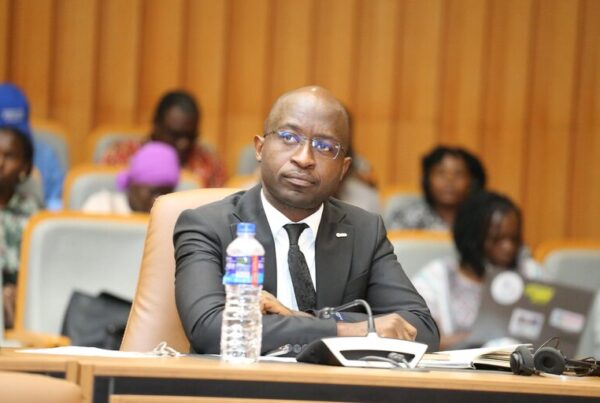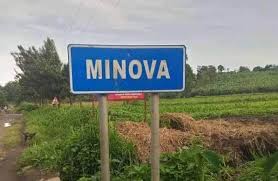Summary of the facts
The women by name, Dorothy Njemanze, Edu Ene Okoro, Justina Etim and Amarachi Jessyforth were abducted and assaulted sexually, physicaly, verbally and unlawfully detained at different times between Janaury 2011 and March 2013 in the hands of the Abuja Environmental Protection Board (AEPB) and other government agencies, such as the police and the military. They were arrested and accused of being prostitutes simply on the grounds that they were found on the streets at night.
17 September 2014
IHRDA, Alliances for Africa, Nigerian Women Trust Fund and the law firm of SPA Ajibade filed the case before the ECOWAs, with support from Open Society Initiative for West Africa (OSIWA).
25 May 2015
Hearing commenced with preliminary applications.
3 December 2015
The case of Dorothy Chioma Njemanze & 3 Others V. The Federal Republic of Nigeria at the ECOWAS Community Court of Justice was heard on Monday, 30 November, 2015.
A witness for the Plaintiffs gave his testimony and was cross-examined. The case has been adjourned to 20 January 2016 for the plaintiffs to be cross-examined.
It should be noted that IHRDA and local partners in Nigeria filed this case before the ECOWAS Court in September 2014 on behalf of the Plaintiffs who had suffered harassment and discrimination in the hands of security agents between July 2012 and April 2013.
18 January 2016
Hearing of the case that had been slated for 10 January 2016 was adjourned to 10 February 2016.
6 February 2016
Hearing of the case that had been slated for 10 February 2016 was adjourned to 18 March 2016.
22 February 2016
Hearing of the case brought forward from 18 March to 14 March 2016.
14 March 2016
The case was called up and adjourned to 10 May 2016
10 May 2016
The case was postponed to 6 June 2016
6 June 2016
The case was heard at the ECOWAS Court. The newly filed additional application by the plaintiff was admitted into the Court; all the 4 plaintiffs and 3 witnesses were cross-examined by the defense based on their disposition before the Court. The defense counsel moved an oral motion to bring in 2 witnesses in the next hearing billed for 4 October 2016.
4 October 2016
The case was called up for hearing, and adjourned to 8 Nov 2016 for definite defense.
8 November 2016
The case was heard, and the Defense Counsel and the Counsel for the Applicants made their submissions; the case was adjourned to 17 February 2017 for judgment.
17 February 2017
The case was adjourned to 7 March 2017 for judgement.
7 March 2017
The case was adjourned to 25 April 2017 for judgement.
24 April 2017
Judgement postponed to a date to be announced.
7 June 2017
Judgement slated for 12 October 2017.
12 October 2017
Court handed down its judgment which was in favour of the plaintiffs.
In its judgment, the Court held that the arrest of the Plaintiffs was unlawful and violated the right to freedom of liberty, as the Defendant State had submitted no proof that these women were indeed prostitutes. The Court also found that branding the women prostitutes constituted verbal abuse, which violated the right of these women to dignity. Further, the Court held that the arrest violated the right of these women to be free from cruel, inhuman or degrading treatment; and also constituted gender-based discrimination.
The Court found that there were multiple violations of articles 1, 2, 3 and 18 (3) of the African Charter on Human and Peoples’ Rights; articles 2, 3, 4, 5, 8 and 25 of the Protocol to the African Charter on the Rights of Women in Africa (Maputo Protocol); articles 2, 3, 5 (a) and 15(1) of the Convention on the Elimination of all forms of Discrimination against Women (CEDAW); articles 2(1), 3, 7 and 26 of the International Covenant on Civil and Political Rights (ICCPR); articles 10, 12, 13 and 16 of the Convention against Torture (CAT); and articles 1, 2, 5, 7 and 8 of the Universal Declaration of Human Rights (UDHR).
The 1st, 3rd and 4th Plaintiffs were each awarded damages in the sum of Six Million Naira (about USD16,500). However, the claim of the 2nd Plaintiff was dismissed for being statute barred under the Protocol creating the Court.
See more information at http://www.ihrda.org/2017/10/ecowas-court-makes-first-pronouncement-on-maputo-protocol-rules-in-favour-of-plaintiffs-in-case-of-dorothy-njemanze-3-ors-v-federal-republic-of-nigeria/




